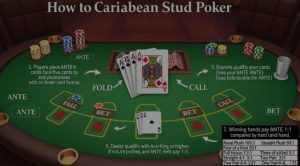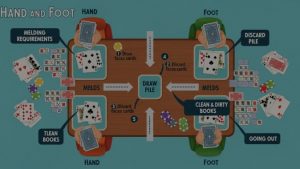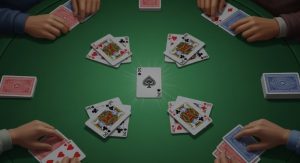Individual Learning Needs
Every player enters poker education with different backgrounds, strengths, weaknesses, and goals. Some come from Hold’em wanting to learn Omaha. Others have years of experience but specific leaks prevent them from beating higher stakes. Recognizing this diversity, quality poker education adapts to individual needs rather than forcing everyone through identical curricula.
Your current skill level determines which content provides the most value. Beginners need fundamentals and clear explanations of basic concepts. Intermediate players require material that builds on existing knowledge without retreading basics. Advanced players seek nuanced strategy discussions and high-level concepts. Customizable learning paths accommodate all these different starting points.
Personal goals shape what you should study. Players targeting live tournament success need different knowledge than those focused on online cash games. Someone building skills for home games has different priorities than someone aspiring to play professionally. Flexible learning systems let you pursue objectives aligned with your ambitions.
Self-Directed Learning Paths
The freedom to choose your study topics empowers you to address your specific weaknesses. When you know that river play is your biggest leak, you can focus exclusively on that area until you improve. This targeted approach generates faster results than following rigid curricula that might spend time on concepts you’ve already mastered.
Skipping material you already understand respects your time and prior learning. If you have solid preflop foundations but struggle postflop, you can move past preflop content quickly and dedicate attention to areas needing work. This efficiency keeps study engaging rather than boring you with information you already know.
Revisiting topics as needed supports different learning curves. Some concepts click immediately while others require multiple exposures. The ability to return to difficult material without feeling like you’re failing lets you learn at your natural pace without pressure.
Curating Your Content Library
Building personal collections of most relevant videos creates customized study resources. As you explore content, save lessons that address your specific struggles. Over time, you develop a curated library precisely altered to your needs.
Different leaks require different solutions. Your saved content might emphasize turn barreling if that’s where you make mistakes, while another player’s library focuses on blind defense. This personalization acknowledges that optimal study plans vary by individual.
Updating your library as you improve keeps resources current with your development. Content that helped you as a beginner might become less relevant as you advance. Adding new saved videos while removing outdated ones maintains a collection that serves your current needs.
Skill Level Customization
Filtering content by skill level ensures you study material appropriate for your abilities. Beginning players can view only foundational content without getting overwhelmed by advanced concepts beyond their current knowledge. This gradual exposure builds confidence and maintains motivation.
As you improve, adjusting filters to access intermediate and advanced content creates natural progression. The same platform that taught you fundamentals continues supporting your development as you tackle more sophisticated strategies. This continuity eliminates the need to find new learning resources as you advance.
Experienced players benefit from immediately accessing high-level content without wading through basics. Clear skill-level indicators help advanced students find material that challenges their thinking and refines their already-strong games.
Game Format Selection
Specializing in specific formats makes sense for many players. If you only play No Limit Hold’em cash games, focusing exclusively on that content optimizes your study time. Filtering out Omaha and tournament content keeps your view uncluttered with irrelevant material.
Players who enjoy multiple formats can study different games on their own schedule. Dedicate some sessions to Hold’em strategy and others to Omaha. Work on tournament tactics when preparing for an event and cash game concepts when playing regular games.
Cross-format learning provides benefits even if you specialize. Concepts from one game often apply to others, and studying multiple formats deepens strategic thinking. The flexibility to explore different areas enriches your poker education.
Topic-Specific Deep Dives
When facing recurring problems in specific situations, concentrated study on those topics accelerates improvement. If you consistently make mistakes in three-bet pots, dedicate several study sessions exclusively to that scenario until you master it.
Breaking down complicated topics into manageable components makes learning less overwhelming. Rather than trying to understand all of postflop play at once, work through flop play first, then turn play, then river play. This modular approach builds thorough knowledge systematically.
Connecting related topics creates detailed knowledge. After studying continuation betting, naturally progress to studying response strategies when opponents continue to bet. This connected learning reinforces concepts through multiple perspectives.
Progress at Your Own Pace
Learning poker doesn’t follow a universal timeline. Some concepts require more time to grasp than others, and different people progress at different rates. Self-paced systems let you spend whatever time you need on each topic without feeling rushed or held back.
Taking breaks from challenging material prevents frustration. If a concept isn’t clicking, study something else and return later. Often, ideas that seem confusing initially make sense after your brain has processed related information.
Accelerating through familiar material maintains engagement. When you already understand a topic well, you can move quickly to avoid boredom. This flexibility keeps study sessions productive and interesting.
Adapting to Changing Needs
Your priorities shift as your game develops. Early in your learning, you might focus on fundamentals. After mastering basics, you need more advanced concepts. Later still, you might work on specific refinements or explore new game formats. Flexible learning systems adapt to these evolving needs without requiring you to switch platforms.
Identifying new leaks through play directs future study. When you notice a pattern of mistakes in certain situations, you know exactly what to study next. This feedback loop between playing and studying creates efficient improvement cycles.
Revisiting fundamentals periodically reinforces foundations. Even advanced players benefit from occasionally reviewing basic concepts. The ability to access content at all levels supports this reinforcement learning.
Learning Style Accommodation
Different people learn effectively through different methods. Some grasp concepts best through visual demonstrations, others prefer detailed written explanations, and some need to work through examples themselves. Access to varied content types accommodates these different learning preferences.
Video instruction provides visual and auditory learning opportunities. Watching instructors work through hands combines seeing their actions with hearing their explanations. This multi-sensory approach helps many people understand concepts more easily.
Pausing, rewinding, and reviewing content multiple times supports thorough comprehension. Unlike live instruction where you must keep pace with the teacher, recorded content lets you control the speed and ensure you fully grasp each point before moving forward.
Goal-Oriented Study Plans
Setting personal objectives gives structure to your learning without imposing rigid schedules. If you aim to beat a specific stake, master a particular aspect of poker, or prepare for a tournament, you can design study plans supporting those goals.
Breaking goals into concrete action steps makes them achievable. Instead of a vague aim to “get better at poker,” create specific targets like “complete all intermediate NLHE modules” or “study 10 hours of turn play content.” These measurable objectives provide clear direction.
Tracking completion of study goals maintains motivation. Checking off completed modules or tallying study hours creates visible progress that encourages continued effort.
Resource Allocation Control
Deciding how much time to dedicate to different topics puts you in control of your development. If preflop play is solid but postflop needs work, allocate most study time to postflop concepts. This resource management ensures maximum return on your study investment.
Balancing breadth and depth according to your needs optimizes learning. Beginners benefit from broader exposure to many topics, while advanced players profit more from deep dives into specific areas. Flexible systems support both approaches.
Adjusting study intensity based on your schedule accommodates life circumstances. During busy periods, maintain lighter study loads. When you have more time, increase learning activities. This flexibility prevents burnout while sustaining continuous improvement.
Building Long-Term Strategies
Poker education extends across years rather than weeks. Creating sustainable learning habits requires systems that support long-term engagement rather than short-term information dumps.
Continuous content additions ensure you never exhaust learning materials. As you work through existing content, new lessons appear, providing ongoing learning opportunities. This infinite growth possibility supports careers spanning decades.
Returning to previously studied material reveals new insights. Concepts you understood at the basic level gain additional depth when reviewed after gaining more experience. This layered learning builds increasingly sophisticated knowledge over time.
Personalized learning acknowledges that you know your needs, goals, and learning style better than anyone else. Systems that empower you to direct your own education generate better results than one-size-fits-all approaches. Take control of your poker development by creating study plans altered specifically to you.





